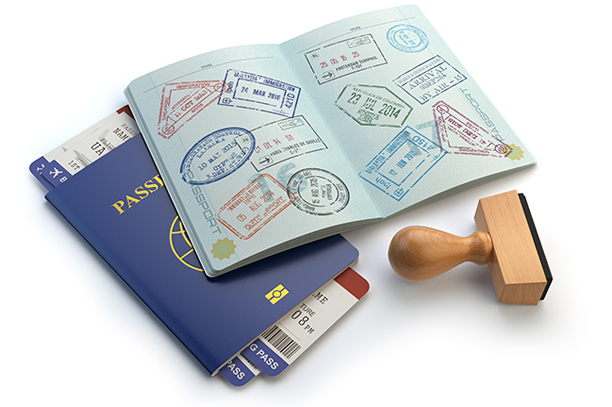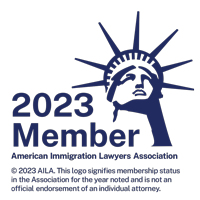
H-1B Visa Alternatives
The annual H-1B filing season is almost upon us when hundreds of thousands of applicants vie for H-1B visas for temporary employment in the United States. Every April, U.S. Citizenship & Immigration Services (USCIS) begins accepting new H-1B visa petitions. Because U.S. immigration law currently caps the number of H-1B visas that can be issued annually to 65,000 (with an additional 20,000 visas available to persons with advanced degrees from U.S. universities), employers rush to file their visa petitions at the earliest possible filing date (April 1). Whenever the number of visa petitions received within the first five business days starting April 1 exceeds the total number of visas that can be approved in that fiscal year, USCIS enters all of the properly-filed petitions received in the first five business days into a random computerized lottery to select the petitions that will actually be adjudicated. Petitions not selected in the lottery are returned to the employer. In 2016, USCIS received 236,000 cap-subject H-1B petitions in the first five business days, leaving less than a 30% chance of selection. Applicants not selected in the H-1B lottery must either await the next lottery the following April or seek alternative visa options to secure employment in the U.S.
Every visa type carries unique requirements and benefits and no visa alternative replicates all of the features of the H-1B visa. However, even a less beneficial visa alternative may allow an individual to at least begin employment with a U.S. employer and that employer can always try again the following year to secure the more generous H-1B visa on behalf of the employee. With that in mind, let’s explore various H-1B visa alternatives:
Cap-exempt H-1Bs
The obvious alternative to a cap-subject H-1B is a cap-exempt H-1B. H-1B petitions filed by institutions of higher education, non-profit entities related to such educational institutions, and certain non-profit research organizations are exempt from 65,000 visa cap. Therefore, cap-exempt petitions can be filed at any time during the year and are effective upon approval (as opposed to effectiveness on the start date of the next fiscal year–October 1–for new cap-subject petitions). The cap exemption is not limited to teaching jobs; any H-1B-eligible position at a cap-exempt institution will be exempt from the cap.
Country-specific Visas
The United States has, through specific trade treaties with individual countries, created employment visas very similar to the H-1B but that are limited to persons from the country to which the treaty applies. The Trade NAFTA (TN) visa is limited to citizens of Canada and Mexico. The E-3 visa benefits nationals of Australia. The H-1B1 is limited to citizens of Chile and Singapore. Each treaty creates different requirements and benefits and, in some cases, these visas may be preferable to the H-1B visa.
Investor Visas
The investor (E) visa allows persons from countries with whom the U.S. has entered a specific trade treaty to come to the U.S. for the purpose of either starting or purchasing a commercial enterprise that will benefit the U.S. economy. Further, the E investor visa allows the principal E investor to bring essential employees from the same country to the U.S. to benefit the business. The U.S. State Department identifies those countries with whom the U.S. has entered an applicable trade treaty on its Visa Reciprocity website.
Multinational Executive / Manager & Specialized Employee Visas
The multinational worker (L) visa allows certain employees of a multinational company that has an affiliated office in the United States to transfer to the U.S. office if they have worked for at least one year of the three years prior to entering the U.S. in the foreign office of the multinational company. It is important to distinguish the latter point: the requirement is not one of the last three years prior to the application for the L visa, but one of the last three years prior to entering the U.S. So, for example, an individual who worked for a company in China for at least a year and then entered the U.S. as a student might later obtain an L visa to work at the U.S affiliate upon completion of the academic program.
Extraordinary Ability / Achievement Visas
The Extraordinary Ability / Achievement (O) visa permits persons with demonstrated extraordinary ability to obtain employment in the United States. Specifically, the O-1A visa applies to individuals with extraordinary ability in the sciences, education, business, or athletics. “Extraordinary ability” in this context means “a level of expertise indicating that the person is one of the small percentage who has risen to the very top of the field of endeavor” and is demonstrated by “sustained national or international acclaim.”
OPT & OPT Extensions
Optional practical training (OPT) is a benefit issued to graduates from U.S. universities and colleges that allows one year of practical training–employment–in the field of study as part of the F-1 student visa. OPT can be extended for an additional 24 months if the H-1B position is a “STEM” position and the employer participates in the E-Verify online employment verification program. Thus, OPT with a STEM extension can result in three years of practical training, enough time to attempt two to three H-1B lotteries. Similarly, depending on the nationality of the applicant, a three-year period of OPT may be long enough to bypass the H-1B completely and move directly into a green card status through the PERM process.
Trainee Visas
U.S. immigration law provides for two types of trainee (J-1, H-3) visas that permit employment solely in the context of a larger employee training program with a documented training plan.
Entrepreneurial Parole
Effective July 2017, USCIS can permit foreign entrepreneurs who can demonstrate that their stay in the United States would provide a significant public benefit through the potential for rapid business growth and job creation up to five years of employment authorization with their start-up enterprise.
Spousal Work Authorization
Persons may be eligible for employment authorization in the U.S. by virtue of their family relationship to another visa holder. Spouses of visa holders in the J, E, and L visa categories and of entrepreneurial parolees may be eligible to apply for employment authorization, as are spouses of H-1B visa holders with an approved I-140 or an H-1B extension beyond 6 years. Also, dependent spouses who have applied for permanent residence can obtain employment authorization by virtue of the pending green card application.


